

|
Two of the books introduced below share a common theme: the constant presence and action of the Grace in our lives. The first book, Life in Sri Aurobindo Ashram by Narayan Prasad, originally published in 1965, presents a detailed portrait of Ashram life during the Mother’s time, and is in many ways a chronicle of the Grace’s action. As Jay Holmes Smith wrote in the Foreword to the 1965 edition, Narayan Prasad “presents to the reader a cameo of the Kingdom of God in the making, a divine community, aware of its shortcomings, growing in the light of its Ideal”. The book provides a rounded look at the outer development of the Ashram without ever losing the focus on its inner life. We see the growth of essential services, departments, education, and cultural and artistic activities followed by chapters on spirituality in action, yoga through works, yoga embracing all aspects of life, and the way of sadhana in the Integral Yoga. Describing how pranam, meditation, and Darshan days used to take place over the years, the author opens a window on many wonderful moments of Grace. But more subtly, throughout the book, one sees and feels how the daily life and work of the sadhaks in the Ashram – their struggles and difficulties as well as their experiences of the higher consciousness – was saturated with the constant presence and action of the Grace. The many personal stories which form an integral part of the narrative give a rich testimony to this underlying truth. Later chapters look at life in the Ashram as a laboratory for the “outflowering of the Divine in the collectivity”, where every sadhak represents a type to be transformed, where the power of wealth is to be conquered for the Divine work, and trade and industry become fields of spiritual endeavour. Describing the Ashram atmosphere where this collective work is being carried out, the author says that “the very atmosphere of the Ashram is charged” with Sri Aurobindo’s teaching, and “it is from the atmosphere one has to choose and take the course of his sadhana.” Later he comments on these two sides of spiritual life in the Ashram, discipline and freedom:
In chapter after chapter, the author describes how the Mother’s way of working set the atmosphere for all activities in the Ashram. She was present everywhere, showering her Grace on everyone. He also quotes from a letter of Barindra Ghose, Sri Aurobindo’s younger brother:
In the final part of the book Narayan Prasad highlights Sri Aurobindo’s spiritual interventions during World War II to stave off the destruction of civilisation and keep open the path of human evolution, his prescience regarding certain political situations of the day, especially the Korean crisis in 1950, the legacy of his vision as detailed in The Life Divine, The Synthesis of Yoga, and Savitri, and the culmination of his yogic action: his discovery of the Supermind and the work he did to accelerate the action of the supramental consciousness, light, and power. He calls these Sri Aurobindo’s “gifts to the world”.
The presence and action of the Grace in our lives undeniably continues, even without the physical presence of Sri Aurobindo and the Mother. In Gifts of Grace: Five Aids for Inner Growth A.S. Dalal has compiled excerpts from their writings that will help guide the aspirant on the path of self-mastery. In his Preface he defines Grace as the evolutionary Force which impels and guides human beings towards self-realisation and says:
This book deals with five of the most helpful agents of the Grace: aspiration for progress, will for progress, faith and trust, difficulties and suffering, and the psychic being. The Introduction highlights some of the major ideas contained in each of the five sections and explains some of the concepts which might be difficult to understand. For example, the inclusion of difficulties and sufferings as a gift of Grace may seem unusual, but the editor explains that although inner difficulties are present in everyone's lower nature, they generally remain obscure. When one takes up spiritual practice, one becomes gradually conscious of them, and this is a sign of the Grace. As Sri Aurobindo wrote to a disciple:
According to the Mother, the psychic being is a special grace given to human beings. It is what makes man an evolutionary being, capable of collaboration in the Divine’s work. The final section of the book is devoted to understanding the nature and influence of the psychic being, although its importance in this compilation is evident from the beginning. The editor reminds us that it is the psychic being that is the source of all aspiration and will for progress, the seat of faith and trust, and only under its influence can one turn difficulties and suffering into a force for inner growth. Sri Aurobindo wrote in one of his letters, “If the inmost soul is awakened, if there is a new birth out of the mere mental, vital and physical into the psychic consciousness, then this yoga can be done; otherwise (by the sole power of the mind or any other part) it is impossible.”
|
| ||||||||||||||||||||||||||||||||||||||||||
ENGLISH | |
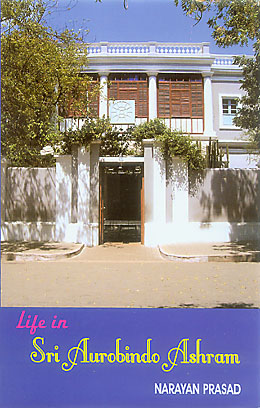 | Life in Sri Aurobindo Ashram
— Narayan Prasad |
This book provides a sadhak’s view of life inside the Sri Aurobindo Ashram during the Mother’s time. It describes the Ashram’s character and atmosphere, its activities, the development of its various departments and services, and its system of education. The author integrates many examples from the lives of sadhaks as he writes about spirituality in action and the type of sadhana practised in the Ashram. Other chapters portray how the Mother worked to develop the consciousness of each individual and how the Ashram represents her effort to bring all facets of life under the influence of the Divine. Later chapters deal with the impact of Sri Aurobindo and the Mother’s force on world events and human evolution. First published in 1965, this new edition is slightly enlarged by the addition of an appendix. | |
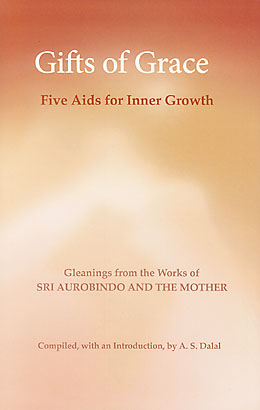 | Gifts of Grace
Five Aids for Inner Growth |
This compilation delves into a study of five aids for inner growth, “gifts” from the Grace which acts as an evolutionary force behind the appearances of life to lead and guide humanity towards the divine realisation which is its destiny. The five aids are aspiration for progress, will for progress, faith and trust, difficulties and suffering, and the psychic being. Selected passages provide the reader with definitions of key concepts such as the roles of personal effort and surrender in the will for progress, understanding the relation between desire and aspiration, and learning to recognise difficulties as the means to make a swifter, more complete progress. | |
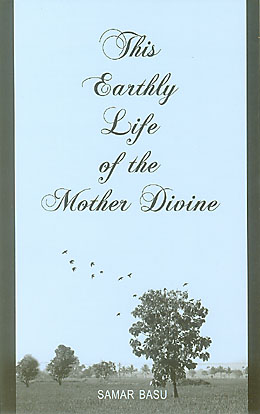 | This Earthly Life of the Mother Divine
— Samar Basu |
A brief survey of the Mother’s life, this book traces her years in Paris and her visits to Algeria and Japan, but concentrates more on the significance of her meeting with Sri Aurobindo in 1914 and the role she played in the founding and development of the Sri Aurobindo Ashram. It recounts the circumstances of Sri Aurobindo’s withdrawal from his body in 1950, the Mother’s subsequent activities, and concludes with an account of the Mother’s withdrawal from her body in 1973. The author quotes liberally from the works of Sri Aurobindo and the Mother as well as from reminiscences and other biographies, most notably Dr. K. R. Srinivasa Iyengar’s On the Mother. | |
HINDI | |
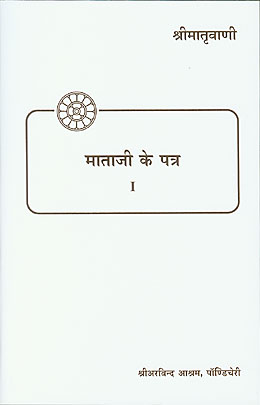 | Mataji ke Patra (Bhag 1)
Sri Matrivani Khand 16 |
Hindi translation of Some Answers from the Mother Correspondence with fourteen persons—disciples living in the Ashram and students of the Ashram school. The Mother answered questions about life and Yoga. | |
TAMIL | |
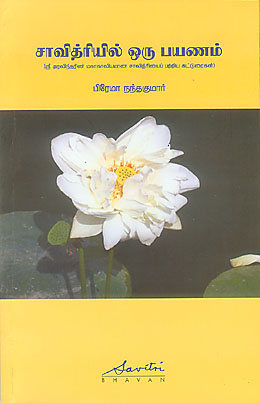 | Savitriyil oru Payanam
Sri Aravindarin Mahakaviyamana Savitriyai patri Katturaigal |
| |
RUSSIAN | |
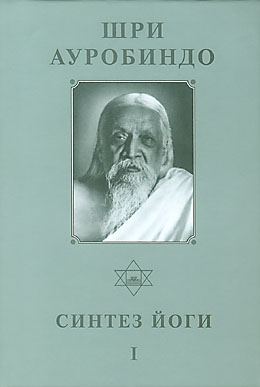 | Sintez yogi I
— Sri Aurobindo |
"Introduction" and "Part I: The Yoga of Divine Works" from The Synthesis of Yoga. The Synthesis of Yoga is Sri Aurobindo's principal work on yoga: an examination of the traditional systems and an explanation of his own method of Integral Yoga. | |
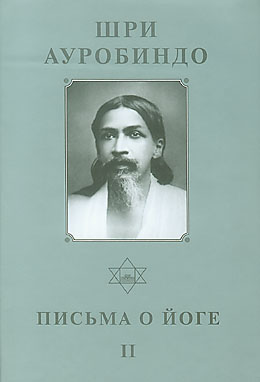 | Pis'ma o yoge II
— Sri Aurobindo |
Letters to disciples in which Sri Aurobindo explains his teaching and method of spiritual practice and deals with problems that confront the seeker. | |
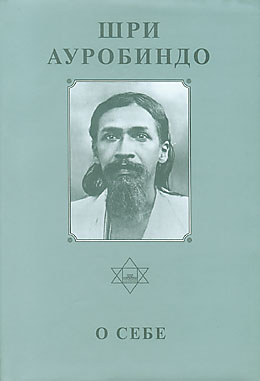 | O Cebe
— Sri Aurobindo |
Russian translation of Sri Aurobindo on Himself Sri Aurobindo's notes and letters to disciples about his life, his inner development through yoga, his spiritual work, etc. "It would only be myself", wrote Sri Aurobindo, "who could speak of things in my past giving them their true form and significance". Though he never wrote a comprehensive account of his life, he sometimes referred, in his correspondence with disciples and others, to events in his outer life and experiences in his Yogic development. Again, on a few occasions he corrected misleading statements about himself published in books and journals, and amended or commented on the manuscripts of three biographies on him submitted by their authors for verification. All this material has been compiled and arranged in Part One. Part Two consists of letters in which Sri Aurobindo speaks of both the Mother and himself. | |
You have received this as a subscriber to SABDA eNews. To unsubscribe, click here. To view previous issues of SABDA eNews, visit our Newsletters page.
|